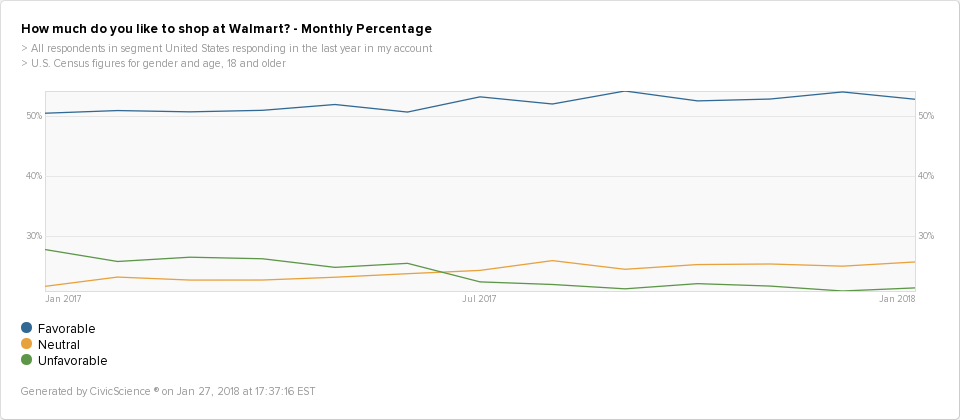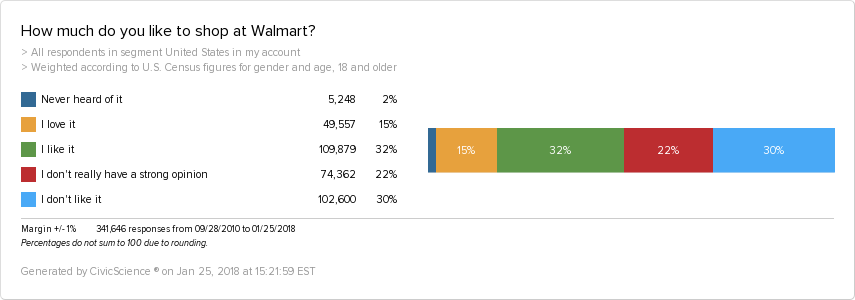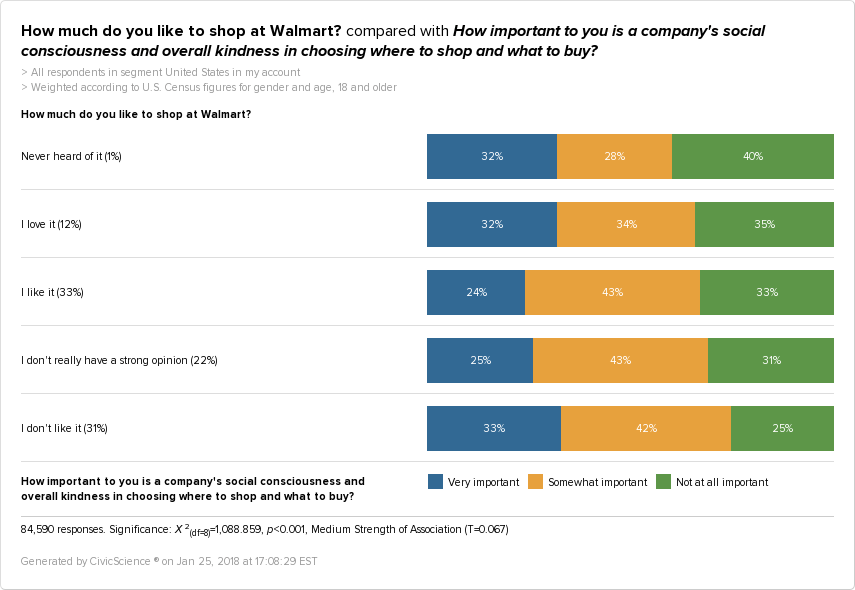The Gist: Walmart unleashes big changes for business with mixed headlines, but shoppers remain resilient.
Love it or hate it (or just don’t care about it), retail giant Walmart has been rolling out some interesting changes as the year kicks off.
Earlier this month, the company announced it would raise its starting wage from $9 to $11 per hour for its 1.5 million U.S. employees, as well as increase maternity benefits and offer bonuses. That goes for Sam’s Club, too, a membership-only retail warehouse owned by Walmart Stores, Inc.
Statements from Walmart thank the Republican tax plan for the changes.
However, Walmart simultaneously announced that it would abruptly close 63 of its 660 Sam’s Club locations. Incidentally, thousands of employees will be laid off as the company converts those storefronts into e-commerce distribution centers to step up its online shopping game. The following day, it was reported that Walmart would also be axing more than 1,000 of its corporate jobs.
Like many high-profile players, you can’t get away without kicking up a little bit of controversy every now and then. Perhaps not as looming as Apple and H&M headlines as of late, we were still interested in public reaction here.
Turns out, a whopping 87% of U.S. adults were privy to some sort of Walmart-related news in the past week, but there were significantly more people who heard about Sam’s Club closings than Walmart’s employee booster (75% to 58%.)
Another case of ‘bad news travels faster than good news,’ it seems. Yet, even with the edge of bad news, there’s no indication that Walmart has alienated segments of its customer base. Favorability ratings haven’t fluctuated:
Perhaps Walmart and Sam’s Club shoppers remain loyal to the brand. Perhaps the closings and layoffs haven’t had time to have a real effect on public sentiment if they will at all.
But what about attracting new customers? Will the 50% of folks who are neutral or dislike shopping at Walmart be more likely to in the future, with its labor and e-commerce upgrades? Or, is the untimely publicity another drop in the bucket of reasons why they might opt to go elsewhere?
Given the negative press Walmart has historically received about its employee wages, it’s not surprising to learn that 75% of those who are unfavorable to the brand are also concerned about the social consciousness of companies they choose to patronize.
But then again, we found that a majority (66-67%) of respondents who are favorable to the Walmart brand also believe that a company’s social consciousness is important when deciding where to shop. Check it out:
It may be worthwhile to further investigate what lies behind these numbers, but for now, we can say that moving towards better labor practices is a step in the right direction for the Walmart empire.












